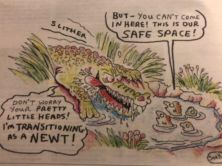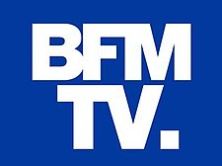Vir Sanghvi addressed the media scandal on his personal blog. (Credit: VirSanghvi.com)
Two Indian journalists — one who is “known as India’s Oprah” — have been accused of violating journalism ethics in what has been called “the biggest scandal to hit the new India.”
Recently published phone transcripts reveal that the two crossed ethical lines and promised to help a lobbyist by providing connections and advice.
The two journalists are Hindustan Times columnist Vir Sanghvi and an NDTV (New Delhi Television) editor, Barkha Dutt, who is also the host of a popular show.
The Hindu reported that magazines Open and Outlook published transcripts of 104 phone conversations that took place between May and July 2009 that “raise questions about the boundary between legitimate news gathering, lobbying and influence peddling” and “shone a harsh and even unwelcome light on the web of connections which exist between the worlds of business, politics and journalism.”
(See Open’s report on the transcripts here and Outlook’s here.)
According to the Hindu, the leaks prompting this India media scandal were anonymous and, in them, journalists seem to suggest being helpful with providing connections and advice for a lobbyist, Niira Radia.
The Hindu cited an anonymous source — a “senior television journalist” — who criticized the journalists’ actions.
“Cultivating a source, giving him a sense of comfort, that you are not antagonistic, massaging his ego — all that is fine. But acting as an intermediary is inappropriate,” the “senior television journalist” reportedly said.
Outlook’s editor-in-chief Vinod Mehta said he published the tapes because of public interest, The Hindu reported.
“We printed the story because it was hugely in the public interest,” he is quoted as saying in The Hindu. “Our purpose is not to pass judgment, but to put information in the public domain.”
The two journalists have defended themselves “saying that they did nothing more than participate in political chatter and did nothing wrong,” the Washington Post reported.
Neither “gave or received any bribes,” according to the Post, but “the recorded conversations have raised questions about ethics in the Indian media and its coziness with corporate and political bigwigs, especially at a time of unprecedented economic growth.”
The Hindustan Times issued a statement Nov. 19 about the scandal. The newspaper stated (see the whole statement here):
“While the authenticity of these transcripts cannot be ascertained, Hindustan Times would like to reiterate its steadfast adherence to a code of ethics of the highest levels and values that involve integrity, credibility and transparency in our constant endeavour to bring news and analysis that is unbiased, balanced and authentic to its readers.”
The Hindustan Times directed readers to a statement on Sanghvi’s personal website and noted that Sanghvi’s weekly column only “expresses” his own opinions.
Sanghvi’s defended himself in his statement (see here), claiming that “there is nothing at all in the transcripts to suggest” that he lobbied.
“While nobody can remember verbatim every conversation that took place 19 months ago, these transcripts do not appear to be entirely accurate,” Sanghvi wrote.
Likewise, NDTV defended Barkha Dutt in a Nov. 18 statement on its website (See here). The television network called the transcripts as published in Open magazine “a defamatory smear campaign” and a “clear misrepresentation of conversations.” Further NDTV accused Open of violating journalism ethics and not seeking comment from Dutt prior to publication.
The Wall Street Journal’s “India Real Time” blog analyzed the tapes as “point” and “counterpoint” here for Hindustan Times’ Sanghvi and here for NDTV’s Dutt.






Comments Terms and Conditions